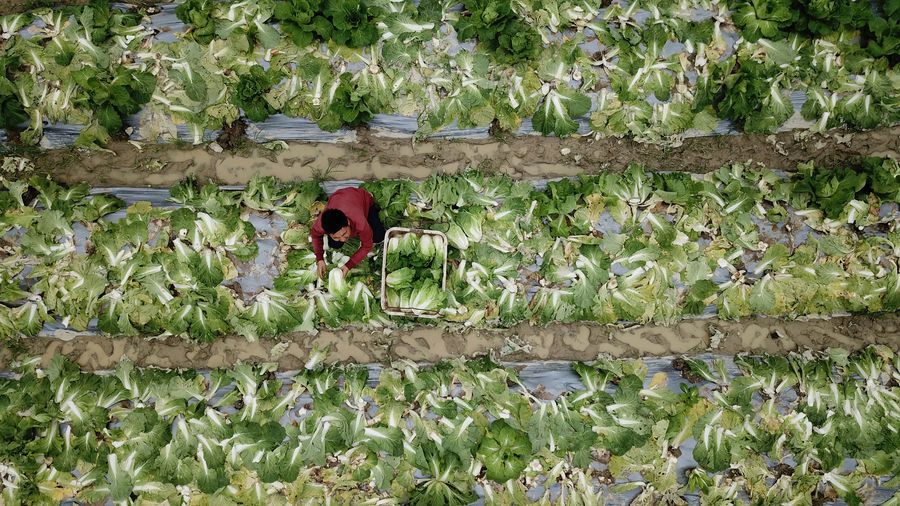
A staff member picking vegetables in Tongren, southwest China's Guizhou Province, May 21, 2019. (Xinhua/Ou Dongqu)
Guizhou has 1.1 million hectares of vegetable plantation areas, with a yield of 24.978 million tonnes a year, bringing income to 494,000 people.
GUIYANG, Dec. 12 (Xinhua) -- Once a remote poverty-stricken province, Guizhou in southwest China, has made rapid progress in poverty alleviation by positioning itself as a winter vegetable supply base to fit in the niche market when fresh vegetables are in short supply.
In Weining County, with an average altitude of 2,200 meters above sea level, farmers employed by vegetable bases are busy harvesting.
In the early morning, Yang Zhaomai skillfully picks pea leaves, combing the tender buds and putting them in the basket.
"Winter months are busy for vegetable farming. The farm offers a basic daily salary of 80 yuan (about 11.4 U.S. dollars). A skillful worker can earn 150 yuan a day," Yang said.
She said farmers have spare time in winter, as crops in their own fields are harvested. The vegetable farms now provide them additional income.
In the mountainous area, traditional crops such as corn and potatoes have low yields, but it can grow high-quality vegetables with advantages of fewer plant diseases and pests than those grown in plain areas.
Guizhou has 1.1 million hectares of vegetable plantation areas, with a yield of 24.978 million tonnes a year, bringing income to 494,000 people.
The vegetables are sold across the province and further to Chinese cities like Beijing and Shanghai, and some are exported. ■



